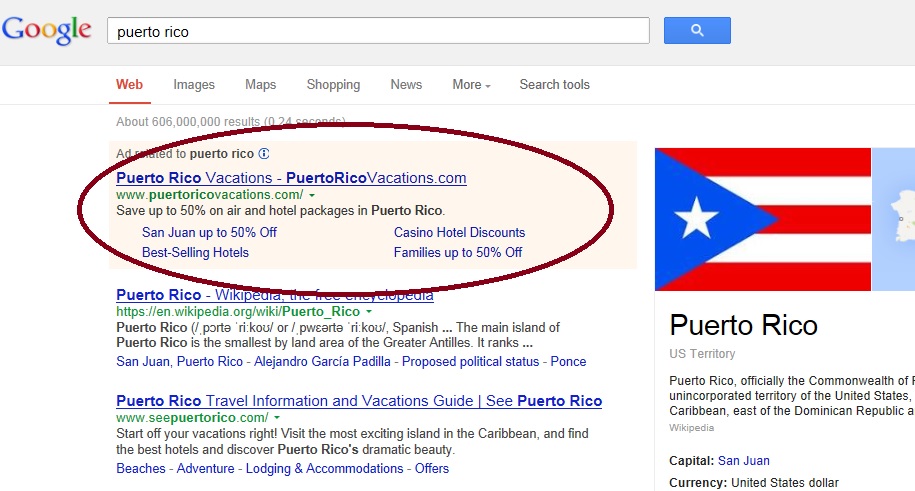Your cart is currently empty!

Adwords: Direct vs. Third Party?
Google’s Adwords — the ads you see at the top or right of your computer screen when you use Google’s search engine — can be a very good option for many businesses. After all, your ad is shown only to people who are searching for your product and you pay only for those who click through to see your ad. Compare that with TV ads, which are shown to everyone watching a program, and you pay even for the people who leave the room to make a sandwich as soon as the commercials come on.
If you’re ready to give Adwords a shot, you must then decide whether to manage your campaigns on your own, or to have someone else manage your Adwords for you.
Have a look at the results one of our clients has seen with us to manage his Adwords campaign, and you’ll see exactly why people choose to have their campaigns managed.
The clicks are up and the costs are down. If you have limited time and limited experience with Adwords, you are likely to find that a more experienced manager will get better results for you.
But you need to be aware of the rules Google has for third-party managers:
- You must have access to your reporting information. Google gives advertisers full access to data about how ads are shown and what kind of results and costs ads achieve. If you set up your campaign and give access to another company to manage it, you can look at the data at any time. If your management company sets up the account and you pay them rather than Google, they are required by Google to give you a monthly report of clicks, impressions, and cost. In the chart above you can also see the click-through rate (CTR) and average cost per click (CPC), and you should be able to get that information if you ask for it.
- Companies cannot imply that they have special relationships or special deals with Google. Some of the false claims companies might make are that they work for or with Google, that they get fixed pricing for ads instead of having to go through the normal auction process, that they have special discounts or bulk-buying deals, or that they can pay for specific positions on the page.
- Companies also can’t claim that buying ads will affect organic search rankings (that’s false) or that they can control your results — for example, we’ve heard from people who’ve gotten phone calls saying that their “listing in Google” will be removed if they don’t pay the caller. Google also forbids multiple cold calls and spamming, so that super persistent salesperson might not be your best choice.
There is an official disclosure that explains these points if you’re uncertain about them.
You can’t have multiple companies manage your account very effectively. Google won’t show two ads from one company on any search page, so you won’t be able to compare results usefully. You can, however, work with a third party in partnership, combining their knowledge of Adwords with your knowledge of your business.
You should see improvements over time. Your cost per click should go down and the number of clicks you receive should go up. Your ROI — the sales from your ad — depend more on your landing page than they do on your ad management. But you should see that increase as well. If not, change your landing page and make sure that your ads support the page they reach.
You certainly can manage your own Adwords campaign. If that’s not the best use of your time, it makes sense to bring in a manager.
by
Tags:


Leave a Reply